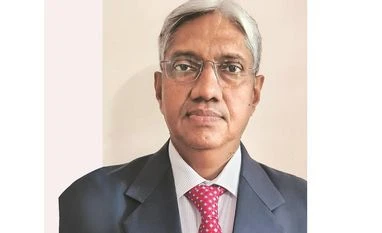Just three days after the Balasore accident that killed nearly 300 and injured almost a 1,000, Railway Board Chairman Anil Kumar Lahoti had raised concerns over the practice of using shortcuts and chalta hai attitude of the zonal railways in their safety inspections, minutes of a high-level meeting held on June 6 showed.
According to sources privy to the minutes of the meeting, Lahoti had said the purpose of safety inspections was not merely to find faults. At the same meeting, he had put the onus of training the staff on inspecting officers. “No shortcuts should be allowed. People should be counselled against the ‘chalta hai’ attitude,” Lahoti was quoted as saying in the minutes.
The meeting was the first item on the agenda after the chairman and Union minister Ashwini Vaishnaw returned from Odisha after prima facie inspection and restoration works at the site of the accident.
Negligence or interference in the operations of interlocking is prima facie being seen as the cause behind the Balasore three-train accident. While specific individuals are under the scanner in the ongoing probe, the minutes reveal that many systemic issues in the railways are also to blame, the sources quoted above said.
A letter written by Member (Infrastructure) R N Sunkar in April had been widely shared earlier this month, as it had flagged major safety concerns in the inspection and clearing of signalling gears by using shortcuts.
At the June meeting, Lahoti focused on the need to review safety in the entire system, “to ensure foolproof working against external and internal factors.” He said no employee, irrespective of the hierarchy, must hesitate to even stop a train in case of unsafe conditions for its movement.
Responding to the Business Standard query on Lahoti’s observations at the meeting after the accident, Ministry of Railways Spokesperson Amitabh Sharma elaborated on the course of action.
“Conducting a system-wide safety audit to identify potential vulnerabilities, strengthening safety protocols and procedures to minimise the risk of accidents, providing additional training and awareness programs to enhance safety consciousness, establishing clear communication channels for reporting safety concerns and incidents, implementing an emergency response plan and ensuring all employees are familiar with it, and regularly monitoring and evaluating the effectiveness of safety measures and making necessary adjustments — these immediate actions will help ensure safe train operations,” he said.
Officials Business Standard spoke to said that the pressure of running trains on time had, in some cases, compromised the level of maintenance of track and signalling assets due to lack of adequate ‘blocks’.
A block is an arrangement of blocking of track against movement of traffic over a particular section duly allowing concerned stakeholders to undertake maintenance.
The ministry has introduced a rolling block programme of 26 weeks (six months) to deal with the menace of scattered and unorganised block periods, where pre-planned blocks will continue to be updated every week so that the upcoming block status is always known for the next 26 weeks. “This will be watched seriously,” Lahoti told zonal railways.
“The regular review of the programme on a weekly basis, along with the addition of another week's schedule, ensures the continuous availability of a well-defined plan. Some of the zonal railways have submitted action plans, rest are in process. Rolling Block Programme shall definitely be implemented across Indian Railways,” the spokesperson said.
This new proposal may or may not see success, according to experts. “Rolling block is normally used for suburban operations where similar types of trains run, one behind the other. Efficacy of this system in mixed traffic streams of Indian Railways where both passenger as well as freight trains run one behind the other is still to be seen,” Lalit Chandra Trivedi, former general manager of East Central Railway said.
In what experts feel can lead to a more fruitful discourse on railway safety, the board ordered zonal railways to critically examine “near miss” cases. Top officials in the safety department instructed zonal railways to undertake internal quality audits on a war footing and investigate causes behind the near-miss cases.
Unlock 30+ premium stories daily hand-picked by our editors, across devices on browser and app.
Pick your 5 favourite companies, get a daily email with all news updates on them.
Full access to our intuitive epaper - clip, save, share articles from any device; newspaper archives from 2006.
Preferential invites to Business Standard events.
Curated newsletters on markets, personal finance, policy & politics, start-ups, technology, and more.
)